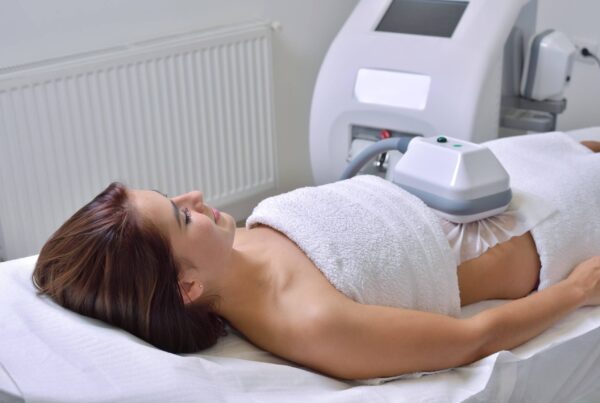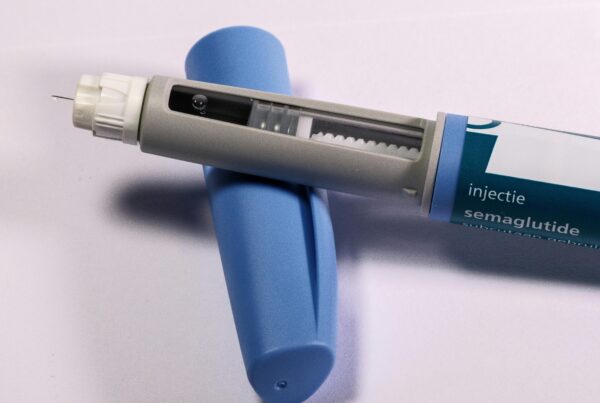June 2025 Update
Texas med spa owners have been buzzing about House Bill 3749, a proposed law that, at one point, threatened major changes to how med spas operate. In this post, we break down exactly what HB3749 (now known as “Jenifer’s Law”) does and doesn’t do, with the most up-to-date information from the past few weeks. We’ll clarify the bill’s impact on ownership structure, medical oversight, and Good Faith Exams, and dispel the myths swirling around online. You’ll also learn how Spakinect played a key role in revising this legislation and why Good Faith Exams remain as important as ever.
Why HB3749 Matters to Med Spas in Texas
In early 2025, A House representative in Texas introduced HB3749, aiming to tighten regulations on medical spas after a tragic incident. The bill was inspired by the case of Jenifer Cleveland, a patient who died in July 2023 following an IV infusion at a med spa . Originally, HB3749 was sweeping in scope, seeking greater physician oversight of med spas by regulating cosmetic medical procedures and elective IV therapy . This included strict requirements like, mandatory physician performed initial exams (Good Faith Exams), and physicians on-site during all procedures. Understandably, these proposals caused anxiety among med spa owners who feared the bill would upend their business operations.
Fast forward to late May 2025… After weeks of industry input and legislative debate, HB3749 looks very different from the original draft. Thanks to advocacy from stakeholders (including Spakinect) and lawmakers’ willingness to listen, the bill was heavily revised before it passed. Spakinect’s leadership worked directly with the bill’s authors during this period, collaborating to ensure the final language addressed safety concerns without crushing compliant med spas . The result is a much narrower bill that zeroes in on the specific issue that sparked it – elective IV therapy – and no longer broadly targets all cosmetic medical procedures. Let’s dive into what changed.
From Crackdown to Clarity: How HB3749 Evolved
Initially dubbed a potential “med spa crackdown,” HB3749 was substantially rewritten in April–May 2025.
The table below summarizes the key differences between the original introduced bill and the final revised bill (“Jenifer’s Law”) that was approved by the Texas Legislature:
| Provision | Original HB 3749 (Introduced March 2025) |
Revised HB 3749 (“Jenifer’s Law” – May 2025) |
| Scope of Regulation | Cosmetic medical procedures at med spas and elective IV therapy. Intended to classify med spas as regulated medical practice settings. | Elective IV therapy only (procedures like IV hydration outside a physician’s office or hospital). All med spa cosmetic procedure provisions removed |
| Good Faith Exams (Initial Patient Assessments) |
Physician-only: A doctor had to conduct an in-person initial exam for each med spa patient before any cosmetic procedure (no NP/PA exams) | Physician or Midlevel: The law no longer dictates who performs cosmetic procedure exams. For IV therapy, it reinforces that a physician, NP, or PA must evaluate a patient before an elective IV is given, essentially a Good Faith Exam requirement for IV treatments. |
| On-Site Supervision | Strict: A physician had to be on-site or immediately available whenever procedures were done; non-physician providers could not operate independently | Removed: No specific “on-site physician” mandate for med spas in the final bill. (Standard Texas rules still require that a supervising provider be available for emergencies, which can include via telehealth |
| Who Can Perform Procedures | Cosmetic procedures: Only properly trained persons under MD supervision; vendors’ device training not sufficient. IV therapy: No explicit new limits in original text (default Texas law allowed physician delegation to various trained staff). |
IV therapy administration: Only RNs, NPs, PAs, or physicians can start an IV for elective therapy. No new restrictions on who can perform cosmetic treatments (aside from existing licensing laws). |
| Effective Date | (Never enacted in its original form.) | Sept 1, 2025: The revised bill, is set to take effect 9/1/2025 |
What Does HB3749 (Jenifer’s Law) Actually Do Now?

With the cosmetic medical procedures language removed, here’s what Jenifer’s Law will require if it’s enacted:
Focus on Elective IV Therapy
The law applies to “elective intravenous therapy” – meaning IV infusions for wellness or temporary relief (vitamin drips, hydration therapies, etc.) provided outside of traditional medical settings . In other words, IV treatments given at med spas, IV bars, or home visit services (not in hospitals or doctors’ offices). The law explicitly defines elective IV therapy in the Texas Occupations Code to make clear it’s considered a medical treatment and not just a spa service.
Medical Oversight & Good Faith Exam
Before an elective IV can be administered, the patient must be evaluated by a physician, NP, or PA. Effectively, a Good Faith Exam is required for elective IV therapy sessions. This mirrors standard medical practice: a licensed practitioner must assess the client’s health, determine the appropriateness of the IV treatment, and issue an order or prescription for the IV. By writing this into law, Texas is reinforcing that IV drip bars need legitimate medical supervision and cannot operate purely under cosmetic spa rules . (If you’re already a Spakinect client, you’ll recognize this as the same principle behind our telehealth Good Faith Exams – ensuring every patient is properly assessed by a medical professional.)
Who Can Perform the IV Stick
Perhaps the biggest new rule is who is allowed to start and administer the IV drip. Under HB3749, only certain licensed professionals can insert the IV line and initiate treatment: a physician, an advanced practice registered nurse (APRN/NP), a PA, or a registered nurse (RN). In practical terms, this means medical assistants, vocational nurses (LVNs), paramedics, or unlicensed technicians will no longer be permitted to physically administer elective IV infusions at med spas or IV clinics. Many Texas med spas and IV therapy businesses already use RNs or higher for IVs, but for those that have relied on non-RN staff, this is a significant change. (It’s worth noting that under current Texas law, a physician can normally delegate certain tasks to any trained person; HB3749 creates an exception by holding elective IV therapy to a higher standard.)
Maintaining Physician Delegation
The law makes it clear that a physician must be involved in the process, either directly or via delegation. Doctors can delegate the ordering of an IV treatment (i.e. prescribing the IV fluids/medications) to an NP or PA, as long as they supervise appropriately . Likewise, administering the IV can be delegated to an NP, PA, or RN under physician supervision . The term “adequate physician supervision” isn’t strictly defined in the bill , but it implies that the doctor needs to oversee the protocols and be available for consultation or emergencies. Essentially, IV therapy at a med spa can’t be a free for all. It must operate under the same kind of medical oversight as in a clinic setting.
No New Rules for Other Med Spa Services
Crucially, if your med spa provides treatments like Botox, fillers, lasers, or other cosmetic procedures (and not IV drips), HB3749 does not add any new state law requirements on those services. The revised bill no longer applies to traditional med spas that focus on aesthetic services like injectables and laser treatments . So, there’s no new Texas statute from HB3749 dictating how you must run your Botox clinic or laser hair removal practice – those remain governed by existing Texas Medical Board rules and TDLR laws that were already in place. In short, the status quo remains unchanged for most med spas’ core services.
Effective Date: HB3749 will take effect September 1, 2025.
It passed both the House and Senate and has been signed by Governor Abbot. This gives med spa and IV clinic operators some lead time to get into compliance with the new requirements.
What HB3749 Means for Med Spa Owners (Practical Implications)
For many med spa owners in Texas, the burning question is: “How will this affect my business day-to-day?” The answer depends on what services you offer:
If your med spa (or wellness clinic) offers IV therapy or IV hydration services:
You will need to ensure compliance with the new protocols by Sept 1, 2025. This means arranging for a proper Good Faith Exam for each IV patient (by an MD, NP, or PA, in person or via telehealth) and having qualified staff (RN or higher) to start the IV drip. Review your staffing. If you currently use LVNs, paramedics, or uncertified technicians to administer IVs, you’ll need to transition those duties to RNs or above. You should also update your written protocols: identify the supervising physician and make sure delegation agreements for NPs/PAs cover IV therapy specifically . Fortunately, these changes align with what many providers consider best practice. If you need help implementing compliant procedures, now is the time to consult with experts (Spakinect can assist with setting up telehealth evaluations and protocol templates to meet the requirements).
If your med spa does not do elective IV drips:
HB3749 does not impose new restrictions on your cosmetic treatments. You do not need to have a physician on-site for all procedures as the early rumors suggested. However (this is key) you still must follow the existing Texas regulations for med spas. That includes things like having a delegating physician overseeing your practice, ensuring each patient receives a proper medical evaluation (Good Faith Exam) before treatment, and maintaining emergency readiness. In fact, recent updates to the Texas Medical Board rules (separate from HB3749) already require many of the safety measures that were in the original bill: for instance, a physician, PA, or NP must establish a patient-provider relationship (e.g. perform a Good Faith Exam, which can be done via telehealth) before any aesthetic procedure , and at least one person trained in basic life support must be on site during procedures . These are existing rules as of 2025, not new laws from HB3749. The bottom line is, even though Jenifer’s Law itself won’t change how you do Botox or laser treatments, you should use this moment as a compliance check-up. Make sure you’re already doing things by the book – if you’ve been postponing implementing formal Good Faith Exams or neglecting documentation, now is the time to get compliant. Not only does this protect patient safety, it also shields your practice from regulatory scrutiny (and we anticipate Texas regulators will be paying even closer attention to med spas in the wake of this legislative effort).
Looking ahead
The fact that HB3749 initially included strict med spa rules but was later narrowed doesn’t mean the conversation is over. Lawmakers and medical boards in Texas (and elsewhere) are clearly concerned about the med spa industry’s rapid growth. The intense attention around this bill signals a growing legislative interest in the aesthetic and wellness sector . Med spa owners should remain vigilant. It’s quite possible that in the next legislative session (or via new board regulations), some of the proposals that got cut from this bill could resurface. For example, we might see future pushes for formal certification of med spa practitioners, tighter rules on who can own or run a med spa, or mandatory reporting of adverse events. Staying proactive – by keeping your practice safe, compliant, and well supervised – is the best way to prepare. When the industry polices itself and consistently puts patient safety first, it reduces the perceived need for harsh legislation.
In short, HB3749’s final form largely leaves responsible med spas alone. If you’re doing things right, you won’t find yourself needing to overhaul your business. The main adjustment is for IV therapy services, which will require tighter protocols. Use this time to make those adjustments calmly – there’s no need to panic or make rash decisions because of misinformation.
Let’s address some of those misconceptions directly…
Dispelling Myths and Misinformation about HB3749

Whenever a high-profile bill like this comes around, rumors can run wild. Here are some common myths we’ve seen online – and the facts to set the record straight:
Myth: “Nurse practitioners can no longer own or operate med spas in Texas because of HB3749.”
Fact: False.
HB3749 does not restrict who can own a med spa. In its final version, the law doesn’t even mention med spa ownership..Texas’s corporate practice of medicine rules remain as they were – meaning NPs, PAs, and others can be involved in med spa ownership/management via MSO arrangements, as long as a licensed physician is supervising the medical services. If you’re an NP running a med spa under a delegating physician’s oversight, HB3749 does not force you to change that model.
Myth: “The new law means only doctors can do the initial consult (Good Faith Exam) with med spa patients now.”
Fact: False.
The final law does not bar NPs or PAs from performing Good Faith Exams in med spas. The initial bill language that required a physician to assess every patient was stripped out during revisions . **NPs and PAs in Texas can continue to conduct Good Faith Evaluations under physician delegation, just as they have been doing, for cosmetic treatments. In fact, HB3749 explicitly acknowledges that IV therapy patients can be seen by an NP or PA (not just MDs) prior to treatment . The Texas Medical Board also allows telemedicine exams by NPs/PAs or MDs to establish the patient relationship. So, rest assured – your ability to use Spakinect or in-house NPs for these exams remains intact. What’s most important is that a proper exam does take place before treatments; that has been and continues to be a requirement in Texas (it’s just good medicine!).
Myth: “Med spas now need a physician on-site at all times.”
Fact: False.
HB3749 does not mandate a full-time on-site physician presence at med spas. That was a feature of the original bill (which required a doctor to be immediately available in person for any procedure) , but it was removed in the final version . The new law doesn’t impose any additional on-site requirement beyond what general Texas regulations already say. Under current Texas Medical Board rules, the delegating physician (or an alternate supervising provider) must be “immediately available” for consultation during procedures – which can be via phone or telehealth – and must be able to see a patient in person for emergencies if necessary . Additionally, at least one clinician with Basic Life Support training should be on premises (that could be a nurse or even the provider themselves) . These are sensible safety measures that many med spas already follow. But there is no new law saying a physician literally has to sit in your med spa all day. For most practices, maintaining compliance with the “readily available supervision” rule (e.g. your medical director is reachable by phone and can come if needed) is sufficient.
Myth: “Med spas can ignore HB3749 because it only affects IV clinics.”
Fact: Misleading.
It’s true that the immediate changes in HB3749 target IV therapy providers . If you don’t offer IV drips, you won’t have new obligations under this specific law. However, med spa owners shouldn’t become complacent. First, if you ever plan to add IV services (a popular trend in the aesthetic industry), you’ll need to comply with Jenifer’s Law. Second, this bill’s journey shows that lawmakers are scrutinizing med spas more closely. Future legislation could easily circle back to cosmetic procedures. In other states, we’re already seeing efforts to tighten rules around med spas, lasers, and injectables. Texas came close to enacting stricter med spa rules here – it was industry pushback that led to a compromise. So consider this a warning shot: Now is the time to double-check your compliance (Good Faith Exams, documentation, supervision, etc.) so that if new rules come, you’re ahead of the game. In short, while you might “ignore” HB3749’s specifics for now if you have no IV component, don’t ignore the broader regulatory climate.
Myth: “HB3749 was killed and isn’t happening, so we’re back to business as usual.”
Fact: Not exactly.
It’s true that the feared parts of HB3749 were removed, and the med spa industry breathed a sigh of relief. But the bill did pass the House and Senate in its revised form and is expected to become law focusing on IV therapy . So it’s not “dead” – it’s very much alive, just limited in scope.
Business as usual will continue only for those who are already compliant with existing law. If anything, this whole episode should be a reminder to ensure your med spa is following current Texas requirements to the letter.
Those include things like: having a written delegation agreement with your medical director, keeping proper treatment records, obtaining patient consent, using up-to-date protocols for devices, and performing that Good Faith Exam for every new patient. Regulators and legislators will be watching.
Luckily, resources like Spakinect make it easier to stay compliant without slowing down your business – for instance, by handling those required exams via telehealth so you can focus on treatments.
Discover Your Med Spa’s Growth Potential
How much time and revenue could you unlock by outsourcing your GFEs? Use our GFE Calculator to find out in under 5 minutes.
It’s quick, easy, and tailored to your med spa.

FAQ: Top Questions from Med Spa Owners about HB3749

What is HB3749 and why do people call it “Jenifer’s Law”?
A: HB3749 is a Texas House Bill from the 2025 legislative session aimed at improving patient safety in non-traditional medical settings.
It’s informally called “Jenifer’s Law” in honor of Jenifer Cleveland, a patient who tragically died after an IV therapy at a med spa by an unlicensed person in 2023 . Her case sparked calls for better regulation of med spas and IV clinics. The bill was introduced to address those concerns. Initially, it targeted medical spas offering cosmetic treatments and elective IV drips, setting stricter rules for both.
However, after input from industry experts and advocacy groups, the bill was amended to focus only on IV therapy safety rather than a broad med spa overhaul . Jenifer’s name remains attached to the law as a reminder of its origins in patient safety. So in summary: Jenifer’s Law is Texas’s new law regulating elective IV therapy, named in memory of a patient whose story motivated the change.
What exactly counts as “elective IV therapy” under this law?
A: Elective IV therapy is defined in the bill as any intravenous administration of fluids, medications, vitamins, etc., for wellness or relief of mild symptoms, done outside of a hospital or doctor’s office.
Think of the vitamin IV drips, hangover cures, immune boosters, and similar services that med spas, IV bars, and mobile IV companies offer. Key points: it’s elective (the patient chooses it for well-being, not a doctor ordering it as medically necessary), and it’s outside a standard medical facility (if it’s in a physician’s office or licensed clinic, the law’s new rules don’t apply – those are already regulated differently).
For example, an IV hydration for a healthy person at a med spa = elective IV therapy. An IV infusion given in an ER to a dehydrated patient = not elective (that’s standard medical treatment). The law carved out settings like hospitals, mental health hospitals, and ambulatory surgical centers from the definition , focusing only on the spa-like or wellness settings. If your business offers IV nutritional drips, beauty drips, athletic recovery IVs, or similar services outside of a doctor’s office, those are squarely within “elective IV therapy” as per HB3749.
Under HB3749, who is allowed to start an IV or administer an IV drip at a med spa?
A: Only medical professionals with specific licenses – namely a physician, PA, NP, or RN.
The new law states that a physician may delegate IV administration only to those categories of providers (and no one lower-level than an RN) . This means licensed vocational nurses (LVNs), paramedics, medical assistants (MAs), or unlicensed techs cannot be the ones inserting the IV needle or pushing IV meds in an elective setting once the law is in effect . Prior to this law, Texas physicians had discretion to train and delegate tasks to people they deemed competent, which in some IV clinics included LVNs or EMTs starting IVs.
Jenifer’s Law changes that for elective IV services by setting a minimum license threshold of RN. So, practically, med spas will need at least an RN on staff (or contracting) to handle IV procedures. Note that the person who evaluates the patient and orders the IV (MD/NP/PA) can be different from the person who administers it (RN/NP/PA/MD) – that’s fine. But whoever is actually performing the venipuncture and hanging the bag must be an RN or higher.
Does HB3749 affect laser hair removal techs or aestheticians performing procedures in med spas?
A: No, not directly.
The law is silent on laser techs, aestheticians, or other cosmetic procedure personnel. Its scope is limited to IV therapy practices. That said, remember that existing Texas laws and regulations cover those roles.
For instance, laser hair removal technicians in Texas must be certified and operate under a laser safety officer/physician’s oversight per Department of State Health Services rules (completely unchanged by this bill). Aestheticians can perform non-medical cosmetic treatments, but if they venture into anything that counts as medical (like depth chemical peels or certain laser treatments), those must be delegated appropriately.
HB3749 doesn’t change any of that. The only indirect effect is that it highlights the expectation of proper medical supervision in all med spa activities. If an aesthetician is doing procedures that are medical in nature at your spa, make sure you’re already complying with the supervision and training requirements that existed prior.
In summary, Jenifer’s Law has no new rules for your laser or facial services – just keep following the rules that were already on the books.
I’m in another state but watching this closely. Could we see similar laws elsewhere?
A: It’s quite possible.
Texas is not alone in reexamining med spa and IV clinic regulations. The med spa industry’s rapid expansion has drawn national attention, and other states have pursued or implemented their own measures.
For example, California has long had strict laws requiring physician ownership of medical practices (affecting med spas), Illinois recently tightened supervision rules for laser and injectable procedures, and Florida and Ohio have looked into IV clinic guidelines. The specifics vary, but the trend is clear: patient safety and proper oversight in aesthetic treatments are hot topics for regulators across the country.
Texas’s HB3749 initially read like one of the toughest stances, though it was dialed back. The fact that a tragic outcome (like Jenifer’s case) can prompt sweeping legislation means any state could react similarly if a high-profile incident occurs. For med spa owners outside Texas, the key takeaway is to be proactive: ensure you have rigorous safety protocols, credentialed staff, and compliance with your state’s current rules. Engage with professional organizations (like AmSpa or state nursing/medical boards) to stay ahead of potential changes. By self regulating and adopting high standards, the industry can better educate lawmakers and possibly stave off overly broad laws.
Spakinect keeps an eye on multi-state regulatory trends, so we can help guide you if you’re unsure about your state’s requirements – and we’ll adapt our services to any new laws that arise.
When does this law actually come into effect, and what should I do before then?
A: As noted earlier, the law is set to take effect September 1, 2025 . Between now and then, if you are in Texas and offer IV therapy, you should use this lead time wisely.
Steps to take before the deadline:
- Review your IV therapy protocols and delegation agreements:
Make sure they align with the new law’s requirements (e.g. explicit mention that an MD supervises and delegates IV therapy, inclusion of NPs/PAs if they’re performing exams, etc.). - Audit your staff credentials:
Will an RN or higher be present for every IV session? If not, plan to hire or train up staff to that level. - Establish a process for the Good Faith Exam:
Each IV patient must be evaluated by an MD/NP/PA beforehand. If you don’t have a practitioner readily available for this, consider setting up a telehealth solution (Spakinect can facilitate those exams efficiently and compliantly). - Educate and document:
Train your team on the upcoming changes so everyone is aware by Sept 1, 2025 that, for example, “only RNs or above can start IVs here now – no exceptions.” Update consent forms or patient intake processes if needed to reflect that a medical exam will occur. - Check your emergency preparedness:
Ensure at least one person on site for IV treatments has BLS/CPR training (which is already a good practice and a Texas board rule ). Have emergency protocols for IV adverse reactions in place (e.g. anaphylaxis from an IV vitamin – staff should know how to respond).
For those not doing IVs, you don’t have a new deadline, but it’s still a good opportunity to tighten up general compliance. The silver lining of the initial scare is that many med spa owners took a hard look at their operations. Don’t lose that momentum. Continue to self audit and improve even without a law forcing you.
How did Spakinect influence the outcome of HB3749?
A: Spakinect was very active in representing med spa owners’ interests during the legislative process. Our CEO engaged in discussions with Representative Angelia Orr (the bill’s primary author) and other lawmakers, providing data and context about how compliant med spas operate.

We, along with allied industry groups, pointed out that the original bill’s broad restrictions would hurt safe med spas without necessarily improving patient safety (since the real issues were with practices operating outside existing rules).
By working collaboratively to ensure the final language reflects the lived realities of those in our industry, Spakinect helped shift the focus of the bill back to the core problem – elective IV treatments – and away from over regulating cosmetic procedures. In updates to our community, we shared that our collective voices were heard, and the substitute bill truly listened to those concerns . The result was a much better, more targeted law.
In short, Spakinect acted as an advocate and resource for legislators to craft smarter regulation. We’re proud to have played a part in protecting the future of compliant, safe, and effective med spa care in Texas, while still honoring the need for patient safety improvements.
Why are Good Faith Exams so important, and how can Spakinect help my med spa with compliance?
A: Good Faith Exams (GFEs) are important for a few reasons:
- (1) They’re legally required in Texas (and many states) to establish the provider-patient relationship before medical aesthetic procedures – skipping them can put your license in jeopardy.
- (2) They ensure patient safety by having a qualified clinician screen for any contraindications or underlying conditions before treatment.
- (3) They demonstrate professionalism and build trust – patients know you’re taking their health seriously, not just selling a service. GFEs are essentially the foundation of patient-centered care in aesthetics.
Spakinect specializes in making the Good Faith Exam process easy and efficient for med spas. We offer a telehealth platform where your clients can quickly hop on a virtual consult with a licensed medical provider who evaluates them and clears them for treatment, all in compliance with Texas law and medical board rules. This means you can ensure every patient has that required exam without bottlenecking your appointment schedule or needing a doctor on site. We also provide documentation and record-keeping for those exams, which helps you avoid board investigations by proving you followed the rules. Beyond GFEs, Spakinect can assist with protocol development, physician oversight connections, and keeping you updated on regulatory changes (like HB3749) so you’re never caught off guard. In essence, we help keep your practice compliant and your patients safe, which not only protects you legally but also elevates your standard of care.
Conclusion: A Safer Path Forward for Med Spas, With Spakinect by Your Side
Texas HB3749 has transformed from a broad med spa bill into a focused IV therapy safety law, reflecting a win-win outcome: patient protection is enhanced, and med spa owners can continue operating without draconian new burdens. This outcome demonstrates what’s possible when practitioners, industry leaders, and lawmakers engage in constructive dialogue. Your voices – amplified by organizations like Spakinect – truly made a difference in shaping sensible regulation . Jenifer’s Law will help prevent tragedies related to elective IV drips, while allowing responsible med spas to thrive and continue offering the aesthetic services that Texans love. That said, now is not the time for complacency. Use this reprieve to double-down on compliance and best practices. Make sure your Good Faith Exam process is airtight, your team’s training is up-to-date, and your medical oversight agreements are solid. By doing so, you’re not only following the law – you’re also delivering safer, higher-quality care. And that’s something your clients will notice and appreciate.
Spakinect is here to help every step of the way.
Whether you need to implement telehealth GFEs to meet requirements, ensure your IV therapy services align with Jenifer’s Law, or just want a compliance check-up for peace of mind, our team of experts is just a call or click away. We pride ourselves on being an informative, authoritative, and helpful partner to med spas – the same values you see reflected in this article are what we bring to our client relationships.






